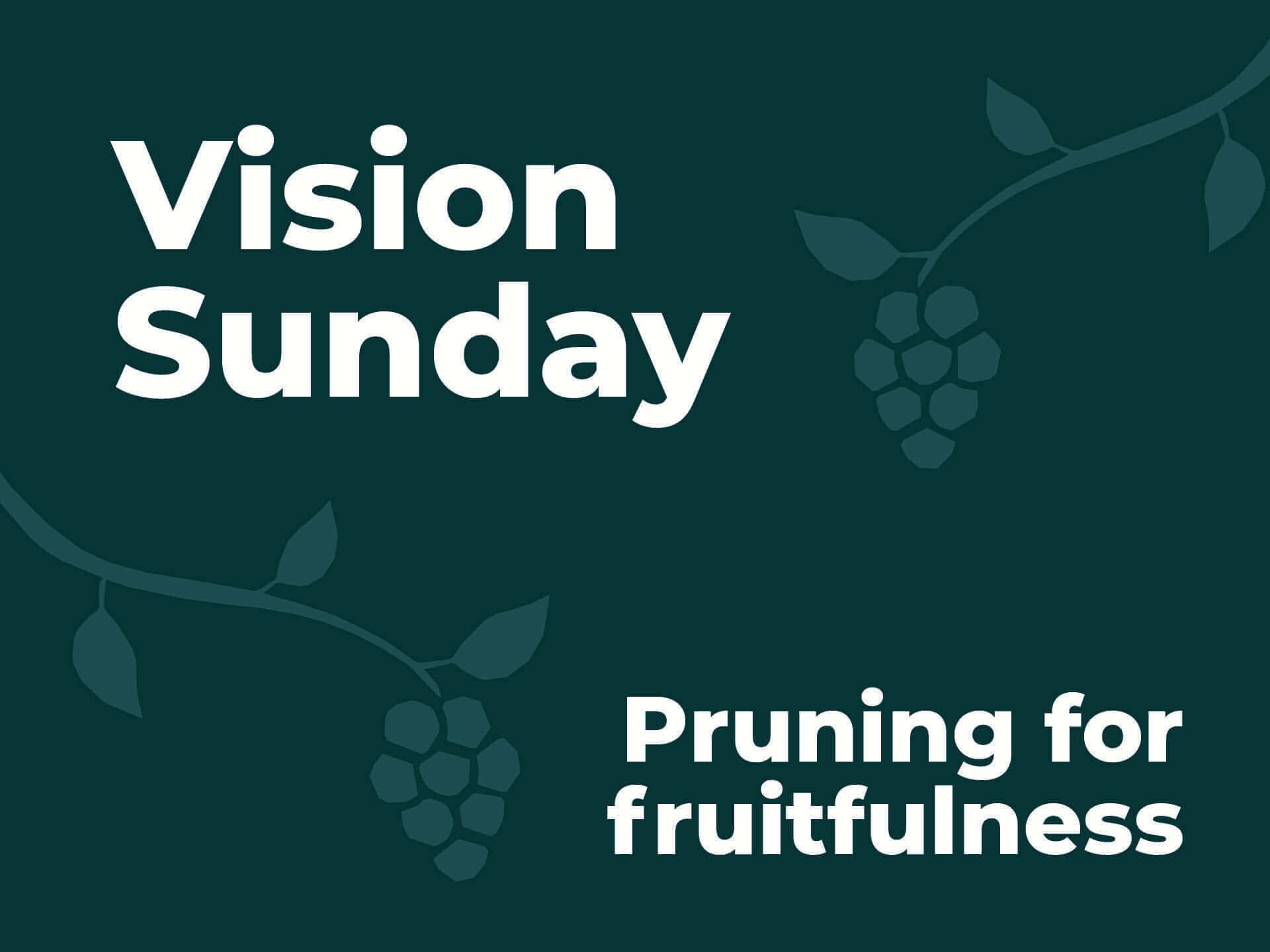The True Vine
About this series
At the start of 2022 Russ, our Lead Elder, spoke about this being a year of ‘pruning for fruitfulness.’ The imagery comes from John 15 so we are going to preach through this chapter over seven Sundays.
The vine and branches are a wonderful and inspiring image but comes at a very intense point in Jesus’ journey to the cross.
There is also a clear Old Testament connection. In the OT “the vine” or “the vineyard” was a common picture of God’s people, and a symbol of the fruitfulness God intended for them. God had done all that was necessary for his people to be fruitful - chosen them, loved them, planted them in ‘fertile’ conditions - yet they continually turned away from him, and failed to be a prophetic witness to the nations of the one true God.
Fast-forward to John’s gospel where Jesus says, “I am the true vine” - I am the truly fruitful one sent by my Father, who himself is the gardener; stay intimately connected to me and dependent on me; your fruitfulness is directly related to that connection. It is by remaining in me that you will be enabled to be the distinct and faithful people of God and a prophetic witness of him.
We have a danger of immediately thinking of fruitfulness in terms of output, usefulness, and productivity - which is certainly part of what it means to be fruitful. But fruitfulness for God is the result of a life rooted in faithfulness to him. That is surely why God’s people produced bad fruit throughout the OT - because they had been unfaithful. Bearing good fruit is a matter of growth in godliness and character; it’s a holiness question as much as a usefulness one.
This series about abiding is not a set of seven ways to be fruitful but is a careful study in John 15. However, we hope that it is extremely practical, with the thread of abiding (as the way to be fruitful) weaving through it all. Each part of the series should help us consider how we can abide in Jesus.
For example:
Through staying conscious of him at all times
Submitting our decisions to him
Keeping his glory as the goal
Connecting to fellow believers
Ensuring that we’re carving out time to be alone with him in personal devotions (prayer, Bible reading, worship, etc)
Growing in our understanding of who he is and who we are in him.
About this talk
Scripture: John 15:1a
In the agricultural context of Israel’s life - in which fig, olive and vine trees were widely grown - he is doing more than simply making use of an Old Testament image. As with all of his “I am” sayings (of which this is the last), Jesus is saying he is the fulfillment of what came before, so much better than all that came before. He is not only another vine; he is the vine.
And only in this “I am” saying does Jesus take an image used for God’s people and apply it to himself. He’s saying that in contrast to Israel - God’s chosen people, called to be fruitful, but who were not - he is the chosen Son who will truly be fruitful. Where all others have fallen short, he will be faithful and fruitful.
As the true vine, Jesus is the one in whom God’s mission will be realised. Israel’s call to faithfulness to God was a call to be fruitful for him - living in a way that honoured him and showed the world he is the one true God. That mission has ended because of Israel’s continual unfaithfulness, but will be accomplished through Jesus and all who are united to him.
And Jesus is the one through whom we ourselves will be fruitful. Once again we cannot avoid the fact that Jesus is pointing to himself as the end-goal and focal point of God’s story. All that went before leads to him and finds its fulfilment in him; all that comes after flows from him and finds its meaning in him. If he is the true vine, it is only in connection to him that any of the branches can hope to bear any fruit themselves.
We look at:
Given the Bible’s storyline, in what ways has Jesus fulfilled the role of the fruitful vine? What was it about him that made him so fruitful? How did he live in a way that was faithful to the Father’s call/mission, and was therefore fruitful?
Though this anticipates later parts of the series if he is the true, fruitful vine, how can we, the branches (see v 5), stay connected to him so that we ourselves are fruitful?
What can we do, in practical terms, to remain connected to the vine and ensure his life is flowing through us?








